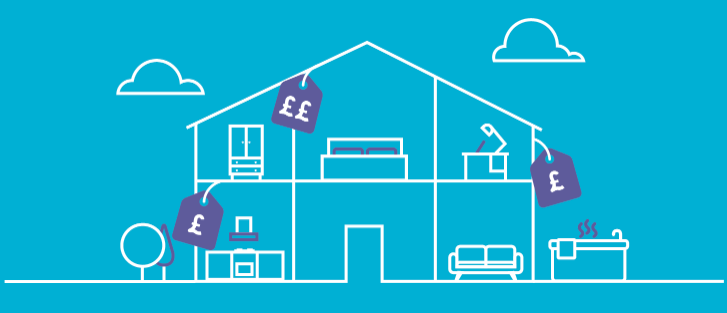
Business broadband security checklist: 5 steps to take today
Business Wi-Fi is an essential service. With so many of our day-to-day tasks relying on our connection – whether it’s taking payments, sharing work with clients, or collaborating with colleagues – broadband security is essential.
The consequences of poor business broadband security could be devastating.
Taking care of your broadband security helps protect you from malware, viruses, phishing, hacking, DDoS attacks, property/data theft, and even potential data protection regulation violations.
On average, a data breach costs a business $3.86million.*
Here are 5 steps you can take today to increase your business broadband security.
Step 1. Put your router(s) in a secure location
Physical security is just as important as digital security. Many digital security measures on a router can be disabled simply by pressing the ‘reset’ button.
If your business has regular visitors, it’s essential to ensure that your router is in a secure location. If a hacker can see the details of your router (model number, configuration, etc.), it makes your system far easier to break into.
We suggest keeping your router in a secure cabinet, cupboard, or office and make sure to lock the door.
Step 2. Change the router name
It’s important to cover the basics. Changing the name of your router makes it easier for customers and colleagues to find the network and get connected, but also helps improve your broadband security.
When your router first arrives and you set it up, the default name that appears when you connect will probably include the router brand-name, or the model number. New routers will also often come with a default password (such as ‘admin’, or even just ‘password’). If a hacker knows your router model, it’s very easy for them to look up the default password for that model and connect to your servers – or even your connection management portal.
This leads us onto our next point…
Step 3. Create a strong password
You’ve heard it before, but we’ll say it again. If you still aren’t using long, complex, and unique passwords for every different service you log into, then your business is not secure.
We know, it’s ‘easier’ to just have one memorable password and use it for everything, but this poses a huge security risk for your business. You should create a strong password for your Wi-Fi management portal, and a strong password for connecting to the Wi-Fi itself.
What makes a strong password?
- 12 or more characters
- A mixture of letters (some using caps), numbers, and symbols
- Don’t use common words/phrases
That can be a lot to remember, which is why a password manager tool can be a great idea. A dedicated password manager helps you to generate unique, complex passwords and will store them securely so that you don’t have to type them out every time you log in anywhere.
It’s worth researching password managers, because if you’re going to save all your passwords in one place, you want to know that it’s a secure service.
We would also recommend changing your Wi-Fi passwords quarterly and when an employee leaves your business. This helps you keep track of who has access to your systems.
Step 4. Set up separate access for guests and employees
If your business welcomes members of the public, contractors, or other guests, you should consider setting up a separate network for them to access. This helps protect valuable business data from prying eyes. You can do this with just one router by using a Service Set Identifier (SSID).
An SSID lets you create two different access points for your network, so that guests and members of the public connect to a separate network to the one your colleagues connect to.
This helps stop strangers from accessing files, devices, and printers on your main network, and is really easy (and free) to set up.
Step 5. Explore extra security options
We’ve outlined some quick steps you can take right now to help increase your broadband security, but there are some other things you can do to take your security to the next level.
You could:
- Invest in anti-virus and anti-malware software which will help protect your files from being manipulated, deleted, or shared.
- Get a firewall to monitor incoming and outgoing network traffic and block unwanted activity.
- Use multi-factor authentication to prevent an attacker from accessing services, even if they get hold of your passwords and usernames.
- Encrypt sensitive business data as an extra layer of protection.
- Backup your data and make a copy of the backup, too.
- Use WPA2 (Wi-Fi Protected Access) to improve network security.
- Introduce a VPN, especially for remote workers accessing business data, servers, and services.
Hyperoptic: put your business broadband in safe hands
It’s important to have business broadband you can count on.
With Hyperoptic, you get access to a dedicated business support team and 24/7 award-winning customer service with the UK’s #1 least stressful broadband provider.** We’ve also got more 5-star reviews on TrustPilot than BT, Sky and Virgin Media combined.***
“The best broadband since sliced bread” – Pete Reis-Campbell, Kaizen
Check out our range of business broadband packages or speak to one of our experts today about your needs.
* IBM, 2020 , Cost of a Data Breach Report 2020
** According to Broadband Genie’s ‘Broadband Customer Stress’ data November 2020.
*** Correct as of 11/11/2021
Check your postcode to get started
Related articles






